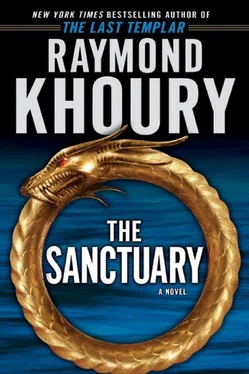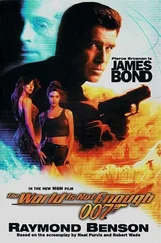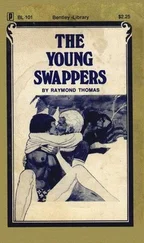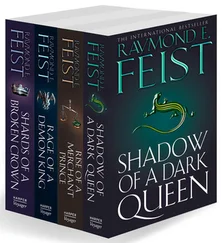If it weren’t for the bodies.
There were two in each room.
Shot in the head in a final, desperate act of insanity.
There were men and women. Young and old. Children, at least a dozen of them, boys and girls. All wearing identical white jumpsuits.
The last cell would mark Rucker to the end of his days.
On its bare, white floor lay the supine bodies of two young boys. Their heads had recently been shaved clear. They stared up at him with unblinking eyes, small, round punctures cratering their foreheads, acrylic-like pools of blood, thick and shiny, framing their hairless skulls. And on the wall of the cell, a crude drawing, carved into the wall as if with a fork or some other blunt instrument.
The etching of a desperate soul, a silent scream to an uncaring world from a horror-stricken child.
A circular image of a snake, curled on itself, and feeding on its own tail.
Zabqine, Southern Lebanon — October 2006
Glancing back at the remains of the mosque, Evelyn Bishop spotted him, half-hidden behind a shrapnel-encrusted wall, standing alone, the ever-present cigarette held between thumb and forefinger. The sight jarred her back to a distant past.
“Farouk?”
Even after all this time, it was unmistakably him. His eyes smiled tentatively back at her, confirming it.
Ramez — the diminutive, hyperactive ex-student of hers, now an assistant professor in her department and, handily for access to this part of the country, a Shi’ite — looked up from the cavity under the mosque’s outer wall. Evelyn told him she’d be right back and made her way over to where the man stood.
She hadn’t seen Farouk since they’d worked together on sweltering digs in Iraq twenty-odd years earlier. Back then, she was the tireless Sitt Evelyn, Lady Evelyn, young, vibrant, passionate about her work, a force of nature, running the excavations at the palace mound of Sennacherib in Nineveh and at Babylon, sixty miles south of Baghdad. He was simply Farouk, part of the digs’ local entourage, a short, paunchy, balding chain-smoker, a dealer in antiquities and a “facilitator,” the kind of fixer that any undertaking in that part of the world seemed to require. He’d always been courteous, honest, and efficient, a quiet, self-effacing man who always delivered what he promised with a humble nod and never shied away from a troublesome request. But from the stooped shoulders, the furrows lining his forehead, and the few surviving wisps of gray where thick, black hair had once ruled, it was clear that the years hadn’t been overly generous to him. Then again, Iraq hadn’t exactly been experiencing a golden age of late.
“Farouk,” she said, beaming. “How are you? My God, how long has it been?”
“A very long time, Sitt Evelyn.”
Not that he was ever a fountain of ebullience, but his voice was, she thought, markedly subdued. She couldn’t pin down the look on his face. Was the aloofness simply due to the intervening years, or was it something else?
A hint of unease crept through her. “What are you doing here? Do you live here now?”
“No, I only left Iraq two weeks ago,” he replied somberly, before adding, “I came to find you.”
His answer threw her. “To find me…?” She was now certain that something was definitely wrong. That his eyes were darting around nervously in between sharp drags on his cigarette added to her concern. “Is everything alright?”
“Please. Can we…?” He beckoned her away from the mosque and led her around a corner to a more discreet, sheltered corner.
She followed him, eyeing the ground warily, ever alert for the small cluster bomblets that littered the whole region. Watching Farouk’s furtive glances at the village’s main road down the hill, it was clear to her that he was on the lookout for an entirely different threat. Through the small alleys, Evelyn glimpsed the activity down the slope — trucks unloading relief supplies, makeshift tents being erected, cars making their way through the chaotic scene at a snail’s pace, all of it punctuated by the occasional distant explosion, a constant reminder that although the thirty-four-day war was officially over and the cease-fire was in place, the conflict was far from resolved — but couldn’t see what he was worried about.
“What’s going on?” she asked. “Are you alright?”
He glanced around, again making sure that they weren’t being watched, then flicked his cigarette away and pulled out a small, tattered brown envelope from his jacket pocket.
He handed it to her and said, “I brought these for you.”
She opened the envelope and pulled out a small stack of photographs. They were Polaroids, slightly bent and worn.
Evelyn raised her eyes at Farouk quizzically, although her instincts were already telegraphing her what the pictures would show. She’d barely started flipping through the first few photos when her worst fears were confirmed.
* * *
She’d moved to Lebanon in 1992, just as the country was emerging from a long and ultimately pointless civil war. She’d decamped to the Middle East shortly after graduating from Berkeley in the late 1960s. She’d been working on a series of digs in Jordan, Iraq, and Egypt when a teaching position opened up at the American University of Beirut’s Archaeology Department. Coupled with the potential to participate actively in the excavations of the newly accessible downtown area of the city, an alluring possibility considering its Phoenician, Greek, and Roman history, it was an opportunity she couldn’t pass up. She applied for and got the job.
Now, a decade and a half later, Beirut was firmly and irrevocably home. She knew she’d live out her years here and die here, and the thought didn’t displease her. The country had been good to her, and she’d more than returned the favor. A small cabal of enthusiastic and passionate students would attest to that, as would the city’s revitalized museum. During the reconstruction of the downtown area, she’d butted heads with the developers and their bulldozers and tirelessly lobbied the government and the international monitors of UNESCO. She’d won some battles and lost others, but she’d made a difference. She’d been an intrinsic part of the rebirth of the city, of the whole country. She’d experienced the optimism as well as the cynicism, the selflessness and the corruption, the generosity and the greed, the hope and the despair, a whole cocktail of raw human emotions and instincts, unveiled and exposed with little consideration for modesty or shame.
And then this disaster.
Both Hezbollah and the Israelis had grossly miscalculated, and predictably, innocent civilians paid the price. That summer, barely a few weeks earlier, Evelyn had watched the Chinooks and the warships ferrying out the trapped foreigners with a lump in her throat, but it had never occurred to her to join them. She was home.
In the meantime, there was a lot of work to do. Classes were scheduled to resume in just over a week, one month later than normal. The summer term’s courses had had to be rescheduled. Some faculty members wouldn’t be coming back. The next few months would be an organizational challenge, with, occasionally, a curious distraction to take in, such as the one that had brought her here, today, to Zabqine, a sleepy town in the rolling hills of south Lebanon, less than five miles from the Israeli border.
The town itself was only there in name. Most of its houses had been reduced to mounds of gray rubble, twisted iron rods, and melted glass. Others had simply been obliterated, swallowed up by the black holes of laser-guided bombs. The bulldozers and trucks had moved in swiftly, clearing away the debris — more macabre landfill for some beachfront hotel development. The bodies of those who had died under the pancaked floors of their homes had been buried, and defiantly, the town was now showing tentative signs of life. The survivors, those who had managed to leave before the onslaught, were moving back, living in makeshift tents while figuring out how to rebuild. The power supply wouldn’t be back for a long time, but at least a water tank had been trucked in to provide drinking water. A small line of villagers waited their turn there patiently, plastic containers and bottles in hand, while others emptied supplies from a couple of UNIFIL trucks that had brought in food and other basic supplies. Kids ran around, playing — of all games — war.
Читать дальше












